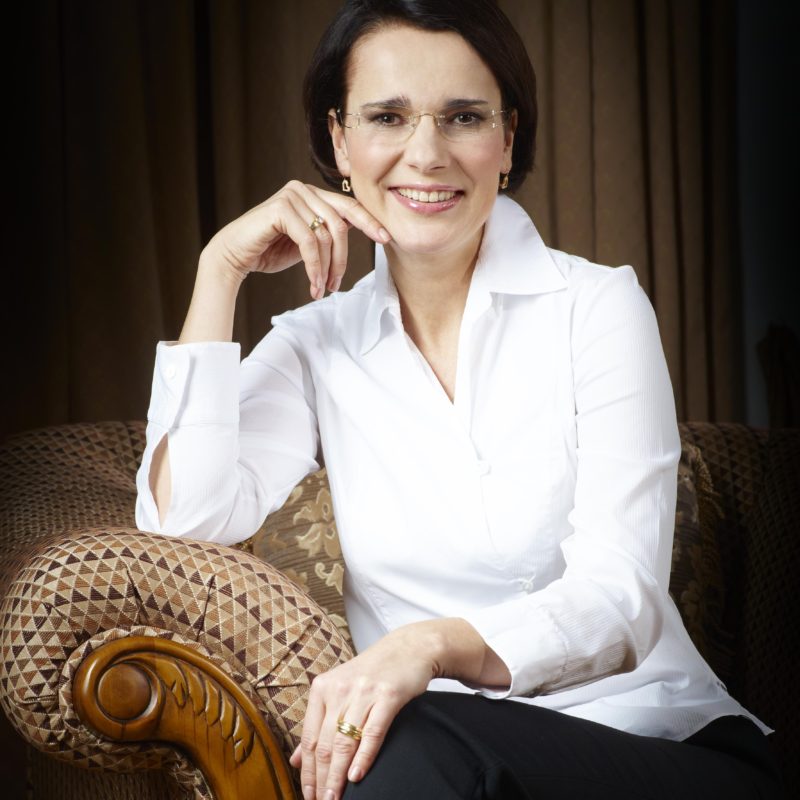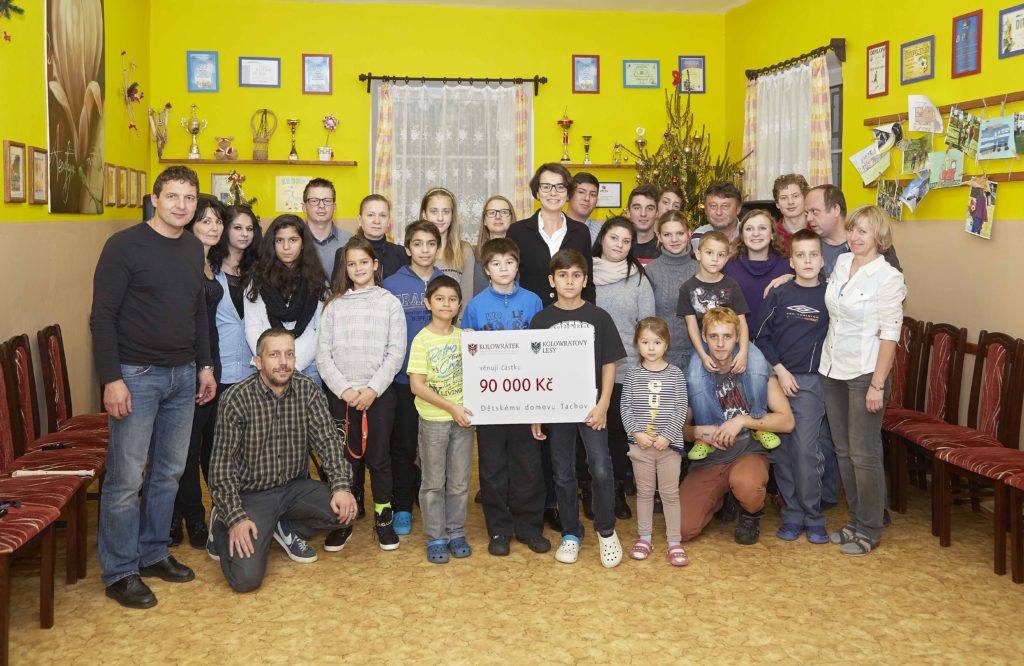On the origins and traditions, duties and pleasures

JUDr. Dominika Kolowrat-Krakowská
Your life story is really interesting. You graduated from a Law University, became an advocate and then got engaged in fashion business. You met Tomáš Kolowrat and after he died, you turned to asset management. I wonder to what extent it was your choice and how big the influence of your call of duty, and the responsibility toward family traditions and your origins, were. I know that life is not an “if game”; however, if you had got the chance, would you have decided differently?
You are absolutely correct, life does not play “if game” and I approach all the obstacles that destiny puts across my way as challenges which I have to humbly accept and try to deal with as best as I can, so that “at the end of the day” I can stop, look behind and tell myself: you did the best you could.
Some events really were not my choice. I am not the type who cries over her destiny adversity. I am rather grateful for the fact that nothing is decided in advance and all unexpected occasions taught me something new. I would have never imagined that one day I would be dealing with a forest business plan, beaver protection, asset management or palace insurance, and a number of charity projects. And this is just a little part of the real scope of my activities.
So, the saying “noblesse oblige” or origins obliges is still valid in the 21st century? How do you fulfil this obligation?
Let me amend that saying a bit to “promise obliges”. I promised to my life partner, František Tomáš Kolowrat-Krakowský, on his last day that I would take care of everything: of our under-aged children, family assets, restitution claims, charity, there were many things to deal with. And I kept that promise and believe that Tomáš is satisfied…
I often notice that nothing stands nowadays; a word given has no value. I personally strive to meet all my obligations, to behave so that I fully meet the trust bestowed on me by Tomáš and our children. I would be really glad if such terms like “honour” and “decency” which are perceived rather as a weakness than a strength or natural trait would rehabilitate again.
Traditional noble families, besides bringing innovations, paid attention to asset management and its aggrandizing like good economists, put in today’s terms. How do you personally perceive this life mission and overall social context and conditions under which you fulfil the task?
I perceive this tradition mainly as a responsibility to my ancestors, to the “roots”, my children, and society in which I live and act. Tradition is not an obsolete thing at all, it is not fossilised and dysfunctional. On the contrary, after all these years I have been managing family assets, I again experience concluding agreements by a “handshake”.
This is truly the right tradition showing not being ashamed of my behaviour, enjoying trust from people around me and prospering as well as increasing wealth under these conditions. Not by deception, by making quick profit at the cost of disappointing a business partner because I have, simply put, “fleeced him out of his money”. If this model was adopted by the majority in our society, our little country would enjoy really good times.
Let’s move from the profit-making activities to the sponsoring ones. The list of your charity projects is unbelievably long and almost took me back to medieval times when aristocracy supported art, music, and theatre. In your case, it is the support of artists through the project Young Czechoslovak Artists, support of a theatre and cooperation with the Prague Shakespeare Company, support of children and disadvantaged people through the Endowment Fund Kolowrátek, a horse riding project… How do you select the projects and is there a new one you would like to include?
I was always interested in the lives of concrete people; we have never contributed – no, it is not plural majestatis and I am speaking about “our” Endowment Fund Kolowrátek – in a blanket manner, without a concrete “receiver”. Gradually (besides the partners who have been supported by Kolowrat-Krakowská family already for hundreds of years, like the National Theatre) we have focused on young people, partly those who are disadvantaged at the starting line, especially disabled children from socially disadvantaged families, and partly those who on the contrary received a lot, they are exceptionally gifted, but they do not have means to be able to develop their talents appropriately.
I perceive you as a very brave woman with a great inner strength. Taking over the asset management after your partner’s death, bringing up two little children. Where did your inner strength come from?
My children and mum were the biggest help. They, as well as my friends and colleagues, were giving me energy. I am a life optimist and of course I also believe that Tomáš is still with me and keeps his fingers crossed…

Endowment Fund Kolowrátek
How do you generally perceive the situation of women and widowed women at present?
First of all, it is of paramount importance at what age or what life situation a woman becomes a widow or what the reasons for her living without a partner are. However, I generally believe in the saying “He who does not strive after his happiness shall have none”. So, if I have healthy hands and head, I can manage practically anything. I always find amusing to hear some women, or rather their self-proclaimed speakers from the political field, crying: we want more rights, more possibilities, more leading positions and chairs on the boards. But this is not the case. On the other hand, I would be offended if I received – by strange quotas – some advantage or priority at the expense of somebody who is more capable than me. Yes, the Bible has always emphasised protection of orphans and widows because they had no support at all. But fortunately, it is not this way anymore. Life simply goes on and I can’t freeze in the moment when I (and my children) lost the closest person 12 years ago…
What makes you happy and what are you looking forward to?
I have reasons to be happy every day and I am looking forward to every new positive challenge. It is very important to find something nice every day, be it just the smallest thing which somebody else wouldn’t think it’s even worth mentioning…
By Linda Štucbartová
Photo By Michal Linhart

